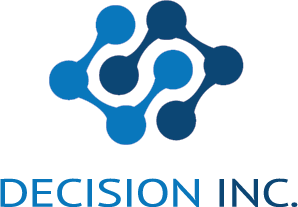BLOG | GENERATIVE AI
The Challenges of Generative AI in Enterprise Environments
Generative AI (GenAI) has rapidly evolved from an intriguing concept to a potential cornerstone in enterprise technology. However, the journey from proof of concept (POC) to delivering tangible value in production environments remains fraught with challenges.
This article delves into these issues, supported by recent research and industry insights.
1. Limited Progression from POC to Production
Despite the availability of GenAI technology for over a year, there’s a noticeable scarcity of enterprises successfully transitioning POCs into production. This reluctance or delay can be attributed to various factors, such as a lack of clear understanding of the technology’s potential, integration complexities with existing systems, and concerns about scalability and reliability in a production setting.
A study by Gartner (2022) highlights that less than 20% of enterprises experimenting with GenAI have moved beyond POC stages, emphasizing the gap between experimentation and practical application.

2. Understanding Production Solution Requirements
The understanding required for implementing GenAI in production are still in a nascent stage. Businesses are grappling with defining robust approaches to manage these solutions effectively. Key concerns include:
Ensuring these solutions fit within pre-existing technology and service management practices
Understanding the newly emerging capabilities and roles
Having the right skills to hand in the enterprise or through effective partnering
Data privacy, aligning with regulatory requirements,
Integrating AI outputs into existing workflows
Research from McKinsey (2023) reveals that only a fraction of businesses have established comprehensive governance frameworks for AI deployment, underscoring the need for more well-considered strategies.

3. Absence of Business Case Rigor in POCs
Many POCs have not been developed with the end goal in mind, leading to a lack of business case rigor and scalability considerations. As reported by Deloitte in their 2023 AI readiness report, numerous POCs fail to transition to production due to inadequate alignment with broader business objectives and an underestimation of the resources needed for scaling. This highlights the critical need for more strategic planning and evaluation in the early stages of GenAI projects and having an effective and economic partnering strategy.
4. Complex Benefit Cases of GenAI Solutions
The benefits of GenAI are multifaceted and extend beyond traditional metrics like cost savings and revenue generation. They have the potential to significantly enhance employee productivity and customer satisfaction (CSAT). For instance, a study by IBM (2023) illustrates how AI solutions can augment the global skills shortage, thus improving operational efficiency and employee engagement. However, quantifying these benefits and integrating them into a cohesive business strategy remains a complex task for many enterprises.
Conclusion
The transition of GenAI from POC to production is filled with challenges, but also immense potential. Enterprises need to adopt a more holistic approach, considering not just the technical aspects but also the strategic and operational implications of these technologies. As the industry matures, it is imperative for businesses to develop clearer pathways and frameworks to harness the full potential of GenAI, turning innovative concepts into real-world enterprise value. Effective partnering with thought leaders is critical to keep abreast of developments in this field of technology with its breakneck pace of change.
Read More
Who Should Take the Lead in Responsible AI?
BLOG | GENERATIVE AIWho Should Take the Lead in Responsible AI? The AI arms race is in full swing, but one question remains unanswered: who’s responsible for making sure it doesn’t go off the rails? Should governments set the rules? Should AI labs embed responsible...
“Is the AI ‘bubble’ about to burst or just starting? ”
BLOG | GENERATIVE AI“Is the AI ‘bubble’ aboutto burst or just starting? ”Artificial Intelligence is everywhere. From boardrooms to tech conferences, AI is the shiny new toy that has almost everyone energised. Yet some people are starting to tune out. After all, how...
“A ship is safe in harbour, but that’s not what ships are for.”
BLOG | GENERATIVE AI“A ship is safe in harbour, but that's not what ships are for.”The same is true of your data! Reimagine this quote in the modern world where your data is the ship, and the ocean is the market you want to dominate. AI can be your map of exploration....



